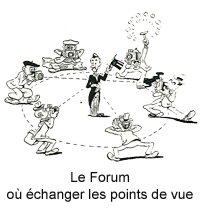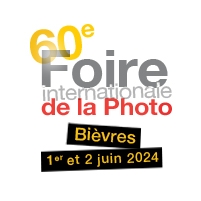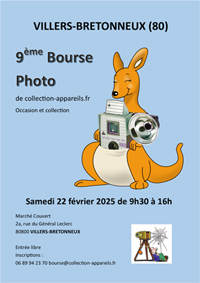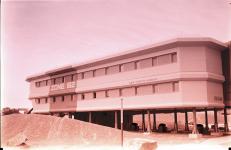|
Natali, Collo et cie Détective |
Manufactured or assembled in France from 1914 to (After) 1914.
Index of rarity in France: Rare (among non-specialized garage sales)
Inventory number: 9775
See the complete technical specifications
Chronology of cameras Natali, Collo et cie
Natali, Collo & Company was the name of a subcontracting manufacturer, not a commercial brand of cameras. All the production was sold under more well-known brands like Manufrance, Plavic, etc. These were distributors or players in the photography market who aimed to add affordable cameras to their catalog.
The cameras manufactured by Natali and Collo were of the Box or Detective type, as the materials used were not suitable for other forms. The wood used was lightweight and not very durable. The covering was limited to decorative paper glued to the wood, which over time tended to wrinkle. Some unusual features for the time are worth noting, such as imitation reptile skin in blue color.
The manufacturing quality was low in order to produce budget cameras. This is the primary characteristic of Natali and Collo cameras. Certain technical characteristics were consistent across the manufacturer's cameras. The shape of the shutter speed selector (P/I) resembled a racket; this design was found on several models. The film advance key was simple, often a bar passing through the axis of the winding spool. The locking mechanism for the back door of detective cameras was circular with a circular notch that allowed it to lock onto a simple nail. On other models, a metal piece with a small hole was positioned over a nail head. The shutter release button was sometimes absent and was simply the end of a rod.
While these features were not universal, these unique characteristics serve as a good basis for identifying cameras from Natali, Collo & Co.
The body of this camera is constructed from wood and covered with Vega leatherette (paper)! The push-button shutter features settings for both timed exposures and instant captures. There are three aperture options to choose from. The diaphragm is basic, comprising a metal component with holes of varying diameters situated in front of the lens.
This camera can also be located in the Dinesmann catalogs. This specific unit was sold by the Panajou company in Bordeaux.

From Natali, Collo & Cie to Chamfrault based on "French Detectives for Beginners" by Etienne Gérard, published by Club Niepce Lumière, reproduced with the permission of the author and the publisher.
In 1906, Messrs. Natali and Collo joined forces to create the company Natali, Collo & Cie, located at 54 rue Labrouste in the 15th arrondissement of Paris. The company's purpose was the production of inexpensive small detective or folding-type photographic cameras. They supplied former clients of Gustave Lepage such as Maison du Franceville, but we can also mention Target & Ledoux in 1909, as well as Dalmais, Ledoux, and Photo-Sport on the eve of the First World War. Starting in 1908, Mr. Natali withdrew his capital, and the company Natali, Collo & Cie became Collo & Cie. Then, in 1911, Henri Collo took over at 54bis rue Labrouste. This change in name most likely followed the purchase of the company's shares by Henri Collo. The company, listed in the 1915 directory, survived the First World War. It continued to supply the Photo-Sport brand in 1919 and became a supplier for Manufrance in 1921. Between 1922 and 1928, Henri Collo sold his company to a certain Houard. During this period, brands like Photo-Hall from 1924, Plavic around 1926, and Photo-Plait from 1928 distributed affordable detective cameras under their own labels, supplied by the Collo or Houard company. In 1931, the rise of metal box cameras led Mr. Houard to sell his company to Mr. Chamfrault. As of 1931, he lost Photo-Hall and retained Photo-Plait and Manufrance as distributors. In order to compete with the metal box cameras, only versions of detectives with luxurious covering were offered from 1931 onward.
In 1933, Mr. Chamfrault became associated with the Syndicate of Manufacturers and Merchants of Photography. The company appears in the syndicate's supplier memorandum from 1933 to 1934.
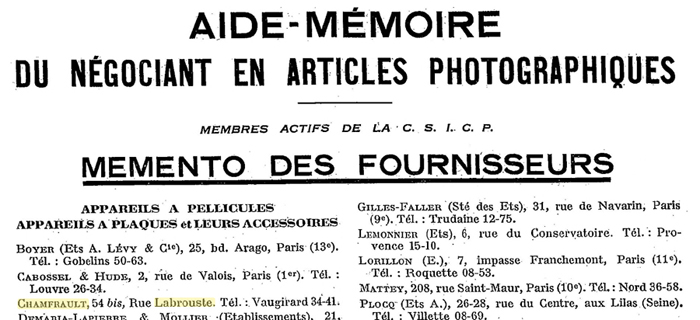
In 1934, the Chamfrault company ceased its activities.
Interesting links or bibliography :
Add a link or element of bibliography, a picture taken with this camera, a picture of box or an ads about this camera
Your photos taken with the same camera:
Cameras from Ebay France (Natali, Collo et cie) (Uploaded each 3 hours)


